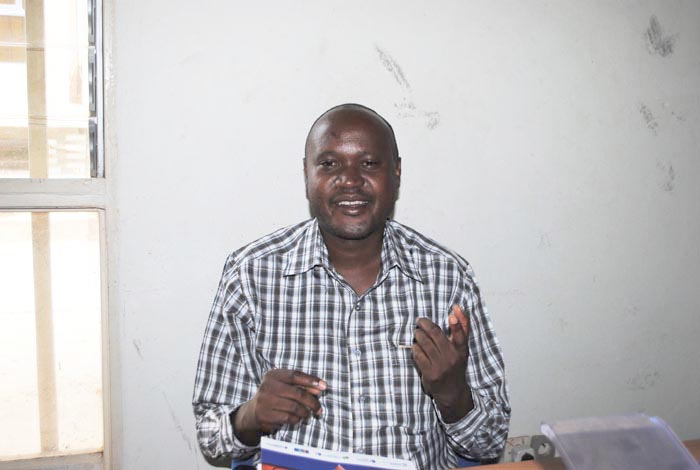The East African Bribery Index Survey shows that in Burundi bribery has decreased more than last year. However, the country must work hard to eradicate it effectively as it remains a big threat in the society.-By Yves Didier Irakoze

Deus Ngerageze: “While the police have 64%, justice and education institutions have 48% and 20% respectively. The police are the first corrupted sector in all EAC countries except in Kenya where justice takes the first place.”©Iwacu
According to Burundian Consumers’ Association (ABUCO), a section of International Transparency, Burundi comes in second place after Uganda, Tanzania, Kenya and Rwanda in bribery concerning those who are bribed and those who bribes. Deus Ngerageze in charge of good governance and fighting against corruption in ABUCO mentions that the most affected institutions in Burundi are the police, justice and education. “While the police have 64%, justice and education institutions have 48% and 20% respectively. The police are the first corrupted sector in all EAC countries except in Kenya where justice takes the first place,” declares Ngerageze. He states that according to the sample questions addressed to different people at national level, 30 % of them confirm that the first reason of the increasing bribery is the fact that institutions supposed to fight against corruption such as the judiciary and anti-corruption corps are the ones which are the most corrupted while 32% say that the second reason is impunity. Concerning the third reason, 19% of people point out that the policy against bribery is not really effective. Institutions have been set up but authorities are not working hard to eradicate it effectively. 10% reveal that the fourth cause of rising bribery in our society is the low salary paid to public institutions’ agents: in fact, they ask for bribery to make ends meet. Lastly, 2% of the respondents highlight that another cause not less important is poor quality of services offered in public institutions; many a times, it is hard to get the service without bribing the public actor when you need it. “The total number of respondents was 1498, i.e. 30% representing 17 provinces of the whole country. This kind of report about bribery in EAC countries is published at the same time to allow easy comparison in the community,” adds Ngerageze. According to him, Uganda comes in first place with 26, 8%, Burundi 18, 6%, Tanzania 12, 9%, Kenya 7, 6% and finally Rwanda with 4, 4%. As mentioned above in all EAC states, the most affected institution is the police.
Everybody must stand against bribery
Corruption is a bad behavior that should be fought strongly not only in EAC but also all over the world. Governments ought to choose appropriate policies and strategies to sensitize people about the evil impact of bribery on a society. “Burundians have already adopted the culture of bribery. Many Burundians are now very eager to be rich very quickly, they want to get dishonestly money they don’t deserve,” points out Ngerageze.
It’s time Burundians became conscious to eradicate that bad behavior. So, people should adopt systematically an attitude of denouncing all bribery actors so that they can be punished accordingly. “The government should ensure punishment measures are carefully respected and the police should be compelled to change their negative behavior towards corruption and be the best example,” concludes Ngerageze.



















 IWACU Open Data
IWACU Open Data

